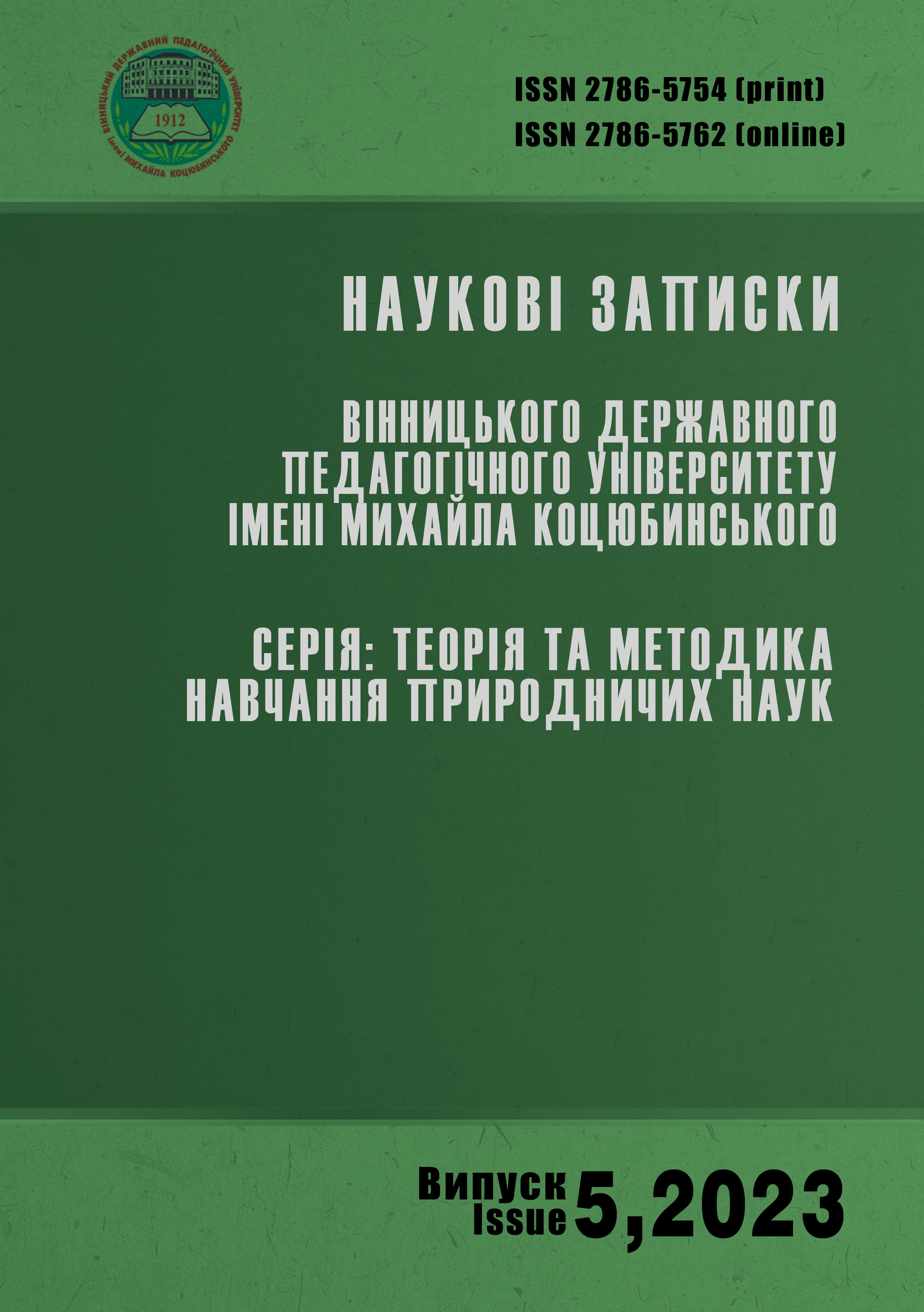Abstract
The article focuses on the study of online learning at school, the problems that arose during the school experiment and its impact on the quality of the acquired knowledge. The issue of the quality of knowledge obtained by means of distance learning, the organization of online practical and laboratory work, and the search for methods of diagnosing the quality of knowledge are quite relevant and in demand. The purpose of the study was to establish the level of quality of studying chemistry in the conditions of distance learning and to determine the factors affecting the success of students. The main tasks: to conduct a qualitative observation of the methods of conducting laboratory and practical work (experiments) during online classes and the attitude of students to distance learning and to study the influence of practical and laboratory work (experiments) in chemistry on the quality of knowledge and the identification of students' misconceptions in chemistry that arose during distance learning.
It was established that the main common problems for chemistry teachers were finding ways to conduct laboratory and practical work, identifying false (false) ideas and diagnostic tools. According to the results of the student survey, the main disadvantages of distance learning in general and conducting laboratory-practical classes in particular were determined: loss of direct contact, problems with the Internet, lack of light, understanding of the material, lack of skills in working with laboratory equipment, inability to manage time, unfair assessment, as well as the fact that that teachers conduct classes too quickly, leaving no time for questions and discussion. This, obviously, reduces interest in disciplines, understanding of certain concepts and quality of knowledge and level of success. Increasing the share of school and home experiments in chemistry contributed to interest in the subject, understanding of the topic and had a positive effect on the quality of knowledge. According to the results of four knowledge controls, positive dynamics were observed: the average increase was 0.66 points: from 0.2 (for 7th grade students) to 1.1 points (for 11th grade students). The use of conversations and various multi-level tests allows not only to discover which ideas and knowledge students have, but also to understand what actions need to be taken to eliminate them.
References
Смірнова О. В., Сулім О. Г. Проведення практичних занять з медичної хімії під час дистанційного навчання. Вісник Вінницького національного медичного університету. 2023. 27. 2. С. 274-278. https://doi.org/10.31393/reports-vnmedical-2023-27(2)-16
Bailey C. J., Card K. A. Effective pedagogical practices for online teaching: Perception of experienced instructors. Internet High. Educ. 2009. 12. 152–155. https://doi.org/10.1016/j.iheduc.2009.08.002
Shivangi D. Online Learning: A Panacea in the Time of COVID-19 Crisis. J. Educ. Technol. Syst. 2020. 49. 5–22. https://doi.org/10.1177/0047239520934018
Lassoued Z., Alhendawi M., Bashitialshaaer R. An Exploratory Study of the Obstacles for Achieving Quality in Distance Learning during the COVID-19 Pandemic. Еducation sciences. 2020. 10. 232. https://doi.org/10.3390/educsci10090232
Гасинець Я. С., Староста В. І., Кривцова М. В. Деякі аспекти організації дистанційного навчання студентів біологічних спеціальностей в ускладнених умовах (пандемія COVID-19, воєнний стан в Україні). Наукові записки Вінницького державного педагогічного університету імені Михайла Коцюбинського. Серія: Теорія та методика навчання природничих наук. № 4. 2023. С. 9-20. https://doi.org/10.31652/2786-5754-2023-4-9-20
Shidiq A.S., Permanasari A., Hernani, Hendayana S. Chemistry teacher responses to learning in the COVID-19 outbreak: Challenges and opportunities to create innovative lab-work activities. Journal of Physics: Conference Series. 2021. 1806. 012195. https://doi.org/10.1088/1742-6596/1806/1/012195
Дубина С. О., Хапченкова Д. С., Бондаренко С. В., Федорова І. О. Методики оцінювання успішності студентів під час дистанційного навчання. Медична освіта. 2022. № 2. С. 28-32. https://doi.org/10.11603/m.2414-5998.2022.2.13103
Hrabovskyi Ye. Methods of Assessment and Diagnosis of the Quality of Knowledge in E-Learning. Journal of Communication and Computer. 2015. 12. 286-296. https://doi.org/10.17265/1548-7709/2015.06.002
Kaltakci D. G., Ereilmaz A., Christie L. D. A Review and Comparison of Diagnostic Instruments to Identify Students’ Misconceptions in Science. Eurasia Journal of Mathematics, Science & Technology Education. 2015. 11(5). 989-1008. https://doi.org/10.12973/Eurasia.2015.1369a
Lee C. B., Hanham J., Kannangara K., Qi J. Exploring user experience of digital pen and tablet technology for learning chemistry: Applying an activity theory lens. Heliyon. 2021. 7. e06020
Shidiq A.S., Yamtinah S. Pre-service chemistry teachers’ attitudes and attributes toward the twenty- first century skills J. Phys. Conf. Ser. 2019. 1157, 042014 p. 1–8. https://doi.org/10.1088/1742-6596/1157/4/042014
Reeves J., Kimbrough D. Solving the laboratory dilemma in distance learning general chemistry, Journal of Asynchronous Learning Network. 2004. 8. 3. p. 47–51. https://doi.org/10.24059/olj.v8i3.1820

This work is licensed under a Creative Commons Attribution 4.0 International License.
Copyright (c) 2023 Наталія Мельниченко, Олена Стаднічук, Людмила Liudmyla, Лілія Кропивницька

